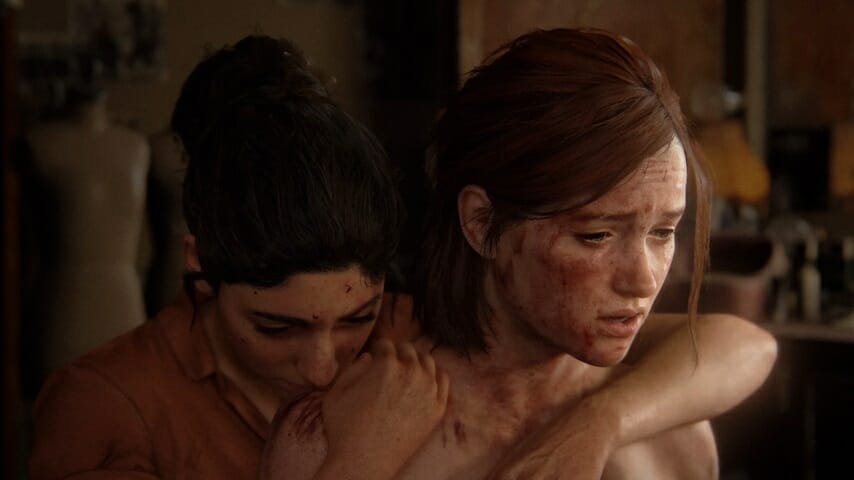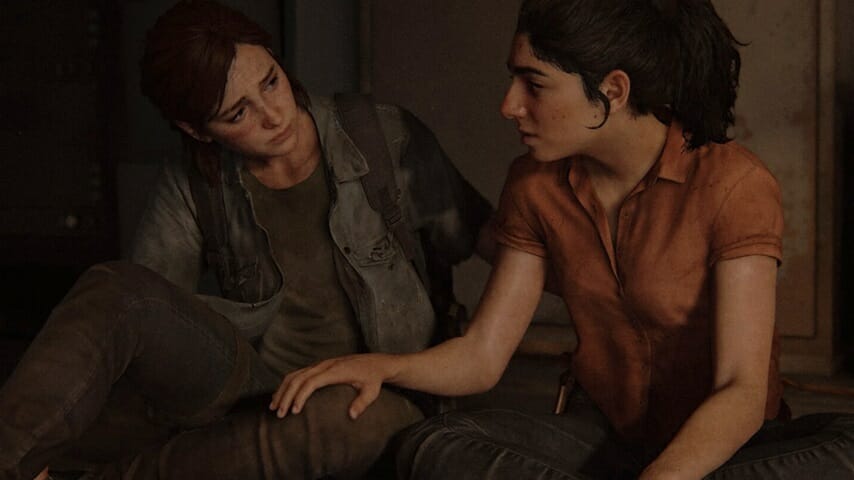The Last of Us Part II Is the First Blockbuster Game in Which I Can See Myself

Heavy spoilers for The Last of Us Part II to follow.
I grew up playing AAA games like The Last of Us Part II. As a child and young teenager, I had little knowledge of games besides the ones on the shelves of Blockbuster and Best Buy that I gravitated to while my cinephile parents searched for the upcoming weekend movie. My first console game was The Legend of Zelda: Wind Waker, in which I played as a pale, blond boy who meets a beautiful brown pirate girl who eventually upgrades into an equally pale, blonde princess. From my first experience with the videogames that define this culture to the masses, I was conditioned to accept there was no space for someone like me.
Except, from its very first moments, The Last of Us Part II also isn’t remotely the kind of game I grew up playing. Its weight overwhelms me near the end when, as Ellie, I circle a farm, absorbing every detail of the first interactive manifestation of my greatest dream: a life in which I raise a family with a woman I love and define happiness on our own terms. As I watch her dance with her girlfriend Dina in the kitchen while she holds their baby, an upbeat song on the record player accentuating the warmth that permeates every inch of their house, I realize The Last of Us Part II is the first of its kind for me.
I didn’t think I needed this game, especially since I was so ambivalent about The Last of Us. I’ve been satisfied with the queer stories I’ve found among my favorite independent games, whose innovation and thoughtfulness sets the groundwork for much of the boldness you find in bigger games. As someone who has been very openly bisexual for years now, surrounded by a community of mostly queer friends, and constantly seeking queer stories, I didn’t think there was any particular validation I needed to find in Ellie and Dina.
But playing a role-playing game and having a narrative carved around you isn’t the same as playing one that’s targeted specifically to you and your singular identity. While I can usually look like myself in these games nowadays and have the freedom to form a relationship with anyone I want, it’s another thing to have a story that explicitly deems people like you worthy of leading one of the most defining works produced by the industry.
Using the word “worthy” feels uncomfortable even as I type it. It implies an inequality, like I’m grateful for being fed crumbs when I’m just getting what people like me have long deserved. Those are the complications of loving a medium and an industry that often doesn’t see you, right? Because the genre of games like Wind Waker hasn’t progressed much in nearly two decades for people who are like me.
For the first time in a game like this, I don’t feel like I’m picking tiny scattered crumbs, grouping them together in a frustrating, pathetic, and redundant effort to make them seem like they create something bigger and more significant than they do. I don’t have to do the labor of putting them together to figure out if there is something I can see that reflects me. Ellie and Dina make me feel seen in a way I’ve never had before in a game with this high of a budget and this much cultural weight, both as individuals and as an inseparable couple.
 Keep scrolling for more great stories.
Keep scrolling for more great stories.

